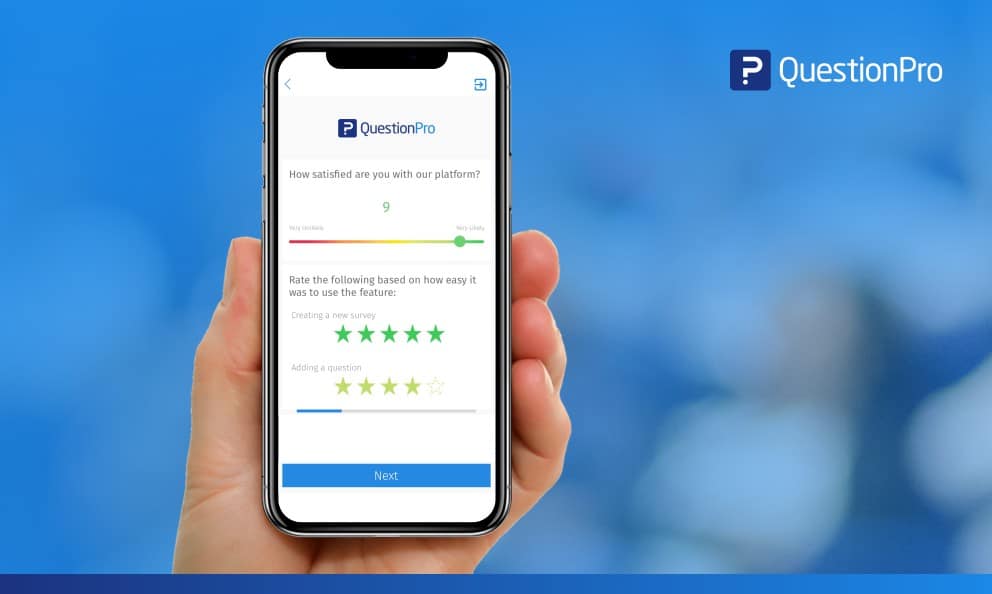 Reading Time: 4 minutes read
Reading Time: 4 minutes readMobile Market Research
The technological achievements in the 21st century know no bounds. The invention of a smart mobile phone is by far the biggest achievement of this century. With this achievement, businesses can drastically improve their research efforts by conducting surveys and collecting valuable response data on the go – online or offline with mobile market research.
Over 95% of the world’s population now owns mobile phones, and 90% of all those phones are internet ready. Add to those other mobile devices, such as tablets (already poised to dominate the world of personal computing), and you can see why people are now free to roam anywhere, without missing a beat. With this marvel of technology at the fingertip of most humans, new and improved possibilities are opening up for every business under the sun. This is particularly germane to the market research industry. How can it not be? Before businesses do what they do, the MR industry has to be there at the forefront, giving them the requisite guidance to navigate through the needs and wants of their current and potential customers. It behooves any business – that makes it it is business to be in touch with its targeted audience – to look to mobile technologies as the next big thing in marketing and research.
Our generation has long graduated from the traditional market research methodologies that mostly revolved around personal interviews (like mall intercepts), mailed or written questionnaires, and telephone surveys. With 94% of market research firms offering online services, it is safe to say that we have effectively evolved from the mall to the internet. But stop and think about this for a second: If 94% percent of market research is being done online, this means that only 6% of it has gone mobile and is therefore ahead of emerging marketing and research trends. With the increased viability of mobile market research, and so much potential up for grabs, why does the MR field still need coaxing and coaching too?
LEARN ABOUT: telephone survey
Top 7 benefits of mobile market research:
-
It’s convenient:
Mobile surveys can be answered from literally anywhere. Furthermore, due to the restrictions inherent in its physical size and limited capabilities, mobile marketing, and research is short and succinct. Clicking yes or no, typing a short sentence, or reading a short tweet on this little machine that resides in your pocket (purse or briefcase) is as simple as it gets. And simple wins, every time. The best part is, these enable you to collect field data without an internet connection using offline surveys.
-
It’s easy:
Survey fatigue is one of the most prevalent concerns in the world of marketing research. The minimal amount of effort that needs to be exerted to participate with a mobile phone that’s already on, in your hand, can convince even the most reluctant survey taker/reader to participate. Being more engaging and fun than traditional surveys pretty much guarantees improved participation rates. In short, easy does it.
-
It’s straightforward:
The fact that it virtually eliminates the middle man and allows for the collection of in-the-moment data directly from the participant in his or her natural habitat (life and home), is one of the most valuable benefits of mobile market research. The advent of more video capturing and producing technologies will no doubt further that attribute, as well as supplement more qualitative information as an added bonus.
-
It gets around:
As the use of mobile phones continues to rise and landline use notably declines, mobile technology will be the best – if not the only way – to reach participants. Reaching more of the population, particularly demographics typically not well-represented in the online sphere or other traditional methods, that tend to be accessible via mobile, is a significant benefit of mobile market research. Easy integration and dissemination of information are also greatly facilitated by the ease with which mobile technology allows participants to interface with their mobile devices.
-
It’s fast:
Efficiency is key here. The instantaneous nature of a mobile exchange ensures that the waiting period between the formulation of a strategy and it is reaching its targeted audience is significantly shorter than before. The potential advantage of faster turnaround time is getting a more immediate consumer reaction to an experience, which makes for a more genuine, in-the-moment, and truer reaction, in other words, enhances the quality of the data by virtually eliminating degradation of memory and inaccurate recollection errors.
-
It’s personal:
Mobiles are agile and “smart”. They allow for the collection of user-generated content (UGC) such as videos and images immediately from the participants’ mobile devices as they go about their daily lives. They gather private user data directly from the device. They capture invaluable geolocation data. Enough said.
LEARN ABOUT: Agile Market Research
-
It’s accurate:
Unmediated insight into people’s lives simply cannot be achieved via traditional research methods as they can with mobile technology. Since most of the information gathered is user-generated, an interesting side effect of mobile market research is that it actually lends itself to increased accuracy of the collected data. Getting small bits of data in a succession planning of interactions that incrementally generate a better understanding of consumer reactions (establish a better profile), which in turn translates to better prediction of behaviors and tastes, is a commodity akin to gold in the marketing and research field.
If you are looking out for an efficient mobile market research tool, make sure you have a secure offline survey app that it supports. This will certainly help you make your research efforts more efficient.









